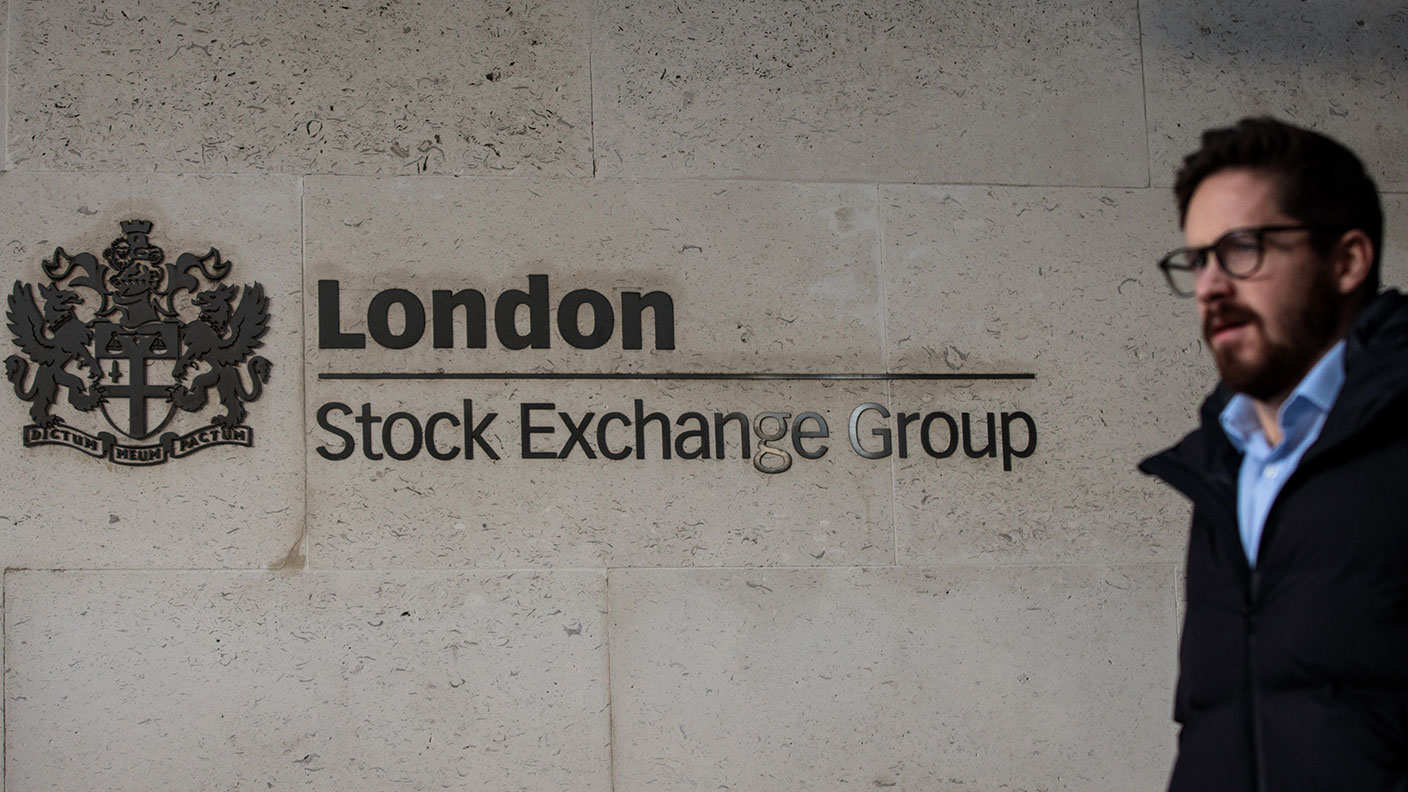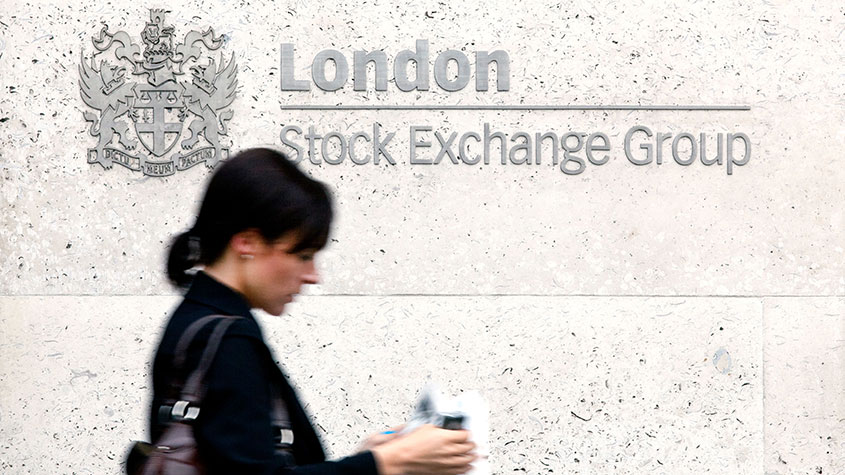UK stocks will bounce back – make sure your portfolio is adequately positioned
UK stocks are more unloved than they’ve ever been. When they recover – and they will – they will move quickly so you need to have positioned your portfolio accordingly. Merryn Somerset Webb explains what to buy.


Get the latest financial news, insights and expert analysis from our award-winning MoneyWeek team, to help you understand what really matters when it comes to your finances.
You are now subscribed
Your newsletter sign-up was successful
Want to add more newsletters?

Twice daily
MoneyWeek
Get the latest financial news, insights and expert analysis from our award-winning MoneyWeek team, to help you understand what really matters when it comes to your finances.

Four times a week
Look After My Bills
Sign up to our free money-saving newsletter, filled with the latest news and expert advice to help you find the best tips and deals for managing your bills. Start saving today!
Back in 2015 the FTSE 100 hit 7,000. It was quite exciting. Today the FTSE 100 is 5,876. Not so exciting.
Shares in some of our flagship companies look awful. Rolls-Royce hit a 17-year low this week. Royal Dutch Shell is down 60% this year alone. Things haven’t been quite so awful across the board – the FTSE 250 is roughly unchanged overall since 2015, but it is still down 21% this year.
All of this has hit our global position. The UK market as a share of both the European and global equity markets is the lowest since the 1970s. The whole thing in a nasty nutshell: a few weeks ago Apple became worth more than the FTSE 100 index.
MoneyWeek
Subscribe to MoneyWeek today and get your first six magazine issues absolutely FREE

Sign up to Money Morning
Don't miss the latest investment and personal finances news, market analysis, plus money-saving tips with our free twice-daily newsletter
Don't miss the latest investment and personal finances news, market analysis, plus money-saving tips with our free twice-daily newsletter
You may say that this all makes sense. The UK market is dominated by the kind of companies no one wants any more – banks, miners and old-fashioned energy – no priced-to-infinity tech stocks here. We’ve also had a horrible time with Covid-19. And our economy is a mess, and one that is about to get a million times worse with Brexit.
This misery argument is very easy to make. One number that makes the case is the percentage of commercial rents collected by the time the third quarter ended this week. UK retailers have paid just over 12% of the rent due for the quarter (that’s even less than at the end of the June quarter). The office sector was better – 32% of the rent was collected, compared with 22.7% at the end of the second quarter. Better, but still carnage.
The unemployment this kind of number hints at might have been delayed by the endless and confusing set of compensation schemes being put in place to counter the endless and confusing lockdown policies, but it will still come: the Bank of England is looking at 7.5% unemployment by the end of the year.
The outlook for the UK really isn’t so bad
These numbers are so easy to find that it is perhaps too easy, as Andy Haldane puts it, to “catastrophise” the discussion – “to dismiss good news and dwell on bad”. Haldane, chief economist at the Bank of England, is expecting 20% GDP growth in the third quarter. The economy, he says, has already recovered “far faster than anyone expected”.
The number of people in work in the UK has so far fallen by only 0.7% since the pandemic started; retail sales are back to pre-pandemic levels; UK factory activity grew for the fourth month in a row in September, based on the IHS Markit/Cips Manufacturing Purchasing Managers’ Index.
And Brexit? Perhaps we worry too much. As Capital Economics noted, at this point there isn’t that much difference between a deal and no deal. That’s partly because leaving the customs union and the single market makes the Brexit we have chosen a relatively hard one anyway. But it is “mostly because a lot of arrangements have already been put in place”.
Trade deals have been replicated. There has been much progress on financial services equivalence and exporters have had plenty of preparation time. In the great scheme of things it might turn out to be much less of a big deal than it seems right now.
Reasons to be cheerful
If you are prepared to open your mind to the idea that the UK is not a lost cause (it isn’t) and that the headwinds we face are fairly temporary (they are), the UK stockmarket suddenly looks very interesting. As Alan Brierley of Investec points out, our equities are “approaching pariah status”. They are now trading on the greatest discount to global equities for 50 years – with UK value stocks trading at their greatest discount to their growth counterparts ever. Yes, ever – despite the fact that the past 25 years of long-term data always shows value investing outperforming growth.
Fund managers are generally known more for their bandwagon jumping than their contrarian thinking skills. But with things at this kind of extreme even they are beginning to think there might be opportunity here.
What if Brexit passes without the world ending, and dividends payouts return? Even if UK banks don’t start paying dividends again, AJ Bell reckons the UK yield will be 3.7% next year. What if the world recognises that it needs our miners? You can’t have electric cars without copper. Or what if we dump lockdown as our anti-Covid strategy? Or the pandemic forces a sudden rise in productivity upon us? Any of these things could prompt a bit of a rethink.
What to buy
On then to Temple Bar Investment Trust (LSE: TMPL), a value-oriented UK investment trust (that I hold) and that has acted as a poster boy for the appalling performance of our stockmarket recently. It’s down 50% in the past year. It lost its long-term manager in the spring and has just announced the new ones: Nick Purves and Ian Lance of RWC Asset Management.
The good news is that the board appears to have been unmoved by the appalling performance of the past strategy in making a decision on their new one. Purves and Lance are firm value adherents – now more than ever. There have been, they say, only three occasions in their careers “when dislocation in the stockmarket has created the most exceptional opportunities for value investors: post the technology bubble of the late 1990s; coming out of the global financial crisis; and today”. Brave words. You can buy shares in Temple Bar on a discount of 14% to their net asset value and a prospective dividend of 6% (the discount reflects the bravery).
Otherwise there are a few new names raising money at the moment (this really is contrarian). The new Tellworth British Recovery and Growth Trust (which you can buy into on PrimaryBid) aims to do exactly what it says on the tin. The Schroder British Opportunities Trust plans to invest in both undervalued private and listed companies (there is a touch of bandwagon jumping in the private bit, of course). Finally there is the Buffettology Smaller Companies Investment Trust, which is looking to raise £100m with a view to value investing among the smallest of UK-listed firms. All look interesting – although as ever with investment trusts I’d be inclined to wait until they list and hope to buy at a discount rather than pointlessly pay full price for shiny new shares.
Professional investors will insist on being able to put a time on a trigger for change, since vague lists like the one I have made above don’t count for them. Ordinary investors don’t need to bother with that. No one cares about our quarterly performance, thankfully. We just need to know that cheap UK equities will break out at some point. And that when it happens, in the words of Angus Tulloch, adviser to Kennox Strategic Value Fund (which I also hold), it will “happen very quickly”. Best be ready.
• This article was first published in the Financial Times
Get the latest financial news, insights and expert analysis from our award-winning MoneyWeek team, to help you understand what really matters when it comes to your finances.

-
 Early signs of the AI apocalypse?
Early signs of the AI apocalypse?Uncertainty is rife as investors question what the impact of AI will be.
-
 Reach for the stars to boost Britain's space industry
Reach for the stars to boost Britain's space industryopinion We can’t afford to neglect Britain's space industry. Unfortunately, the government is taking completely the wrong approach, says Matthew Lynn
-
 What's behind the big shift in Japanese government bonds?
What's behind the big shift in Japanese government bonds?Rising long-term Japanese government bond yields point to growing nervousness about the future – and not just inflation
-
 What is a dividend yield?
What is a dividend yield?Videos Learn what a dividend yield is and what it can tell investors about a company's plans to return profits to its investors.
-
 What is a deficit?
What is a deficit?Videos When we talk about government spending and the public finances, we often hear the word ‘deficit’ being used. But what is a deficit, and why does it matter?
-
 3 UK shares to buy yielding up to 17%
3 UK shares to buy yielding up to 17%Tips 3 UK shares top stocks to buy now, according to Alex Harvey of Momentum Global Investment Management.
-
 Why this biotech company has years of growth ahead
Why this biotech company has years of growth aheadAnalysis Zimmer Biomet, a leader in the worldwide market for hip and knee joints, enjoys a competitive advantage and has years of growth ahead, says Dr Mike Tubbs.
-
 House prices to crash? Your house may still be making you money, but not for much longer
House prices to crash? Your house may still be making you money, but not for much longerOpinion If you’re relying on your property to fund your pension, you may have to think again. But, says Merryn Somerset Webb, if house prices start to fall there may be a silver lining.
-
 Can energy futures tell us where our fuel bills are going next?
Can energy futures tell us where our fuel bills are going next?Analysis It’s tempting to think that energy futures tell us where our energy bill might be heading next. But in reality, markets are just too complex. Cris Sholto Heaton explains why.
-
 The markets say sell, but should investors listen?
The markets say sell, but should investors listen?Analysis As fear grips markets around the world, investors need to have an honest conversation about what they’re comfortable with owning.